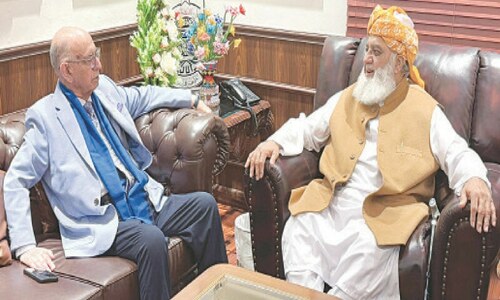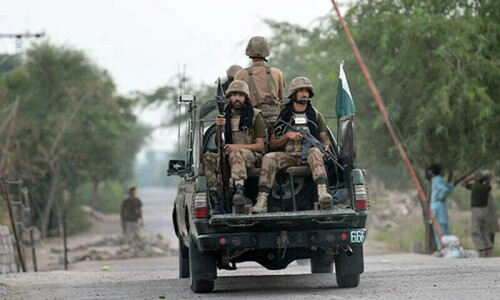THE Soviet-Afghanistan war in 1979, the so-called war on terror led by the United States and the subsequent American invasion of Afghanistan in 2001 turned out to be terrible events for the erstwhile Federally Administered Tribal Areas (Fata), which are now part of Khyber Pakhtunkhwa (KP) province.
After the 9/11 attacks, Fata emerged as the most volatile region and was believed to be the epicentre of international terrorism. Furthermore, multiple military operations were launched to counter terrorism, which created issues of national integration.
Post-merger, the youth of erstwhile Fata saw a change, such as young boys and girls got admissions to universities and other capacity-building programmes. People mostly ask if the Frontier Crimes Regulation (FCR), a set of British colonial laws, was better for the people of the region, or the Fata’s merger with KP.
The answer is not easy, but the two different scenarios need a critical analysis. The British colonial legacy ruled for more than one century where a victim had no right to have a defence lawyer or to appeal against a verdict. The people of Fata were kept marginalised by depriving them of justice and human rights.
During those days, access to information was severely limited. Post-merger, the system of governance, laws, policing, judiciary and power to local departments changed. The tribal people were familiar with the FCR because of its hundred-year history of practice, and their nucleus of decision-making was based on those draconian laws. Therefore, in time such laws got the status of a social code of honour, called Pashtunwali, such as nang (honour), melmastiya (hospitality), turah (bravery), badal (revenge), wafa (loyalty) and nanawatey (asylum).
Recently, the idea and practice of development has become increasingly contentious, not the least because it has a problematic relationship with both individual and communal human rights, and it is up against significant opposition from regional, localised approaches, particularly in ex-Fata areas.
In the words of Arturo Escobar, “remaking of development must start by examining local constructions, to the extent they are the life and history of people, that is, the conditions for and of change”. The government should address the problems of each district with different lenses. For example, Kurrum and Orakzai districts have land disputes with more than a hint of sectarianism about them. In contrast, North and South Waziristan are engaged in land disputes on the basis of tribalism. Therefore, the government has two options; jirga and judiciary.
With respect to education, the approach should comprise the history, political science, economy, social structure, innovation, and anthropology of the areas concerned. Besides, the government should engage the youth in paid internship focussing on skill-oriented programmes, such as learning languages, computer software, traffic rules, entrepreneurship, rational thinking and digital economy.
Lastly, erstwhile Fata and Afghanistan share a border. People who reside on either side of the Durand Line are closely connected economically. Six of the eight trade routes that connect Pakistan and Afghanistan go via erstwhile Fata. These are Angoor Adda, Ghulam Khan, Kharlachi, Khyber Pass, Nawa Pass and Gursal. As a separate province, erstwhile Fata has enormous potential for transit trade earnings. But a rise in militancy and fear affect trade and economy badly.
For the young in such areas, joining the militant groups is the easy way out in the face of lack of development in the region. There are hardly any social services and virtually no employment or entrepre-neurship opportunities despite the fact that the territory has vast potential for development, particularly in mineral and tourism sectors.
For immediate and long-term peace and development in the region, a sustained dialogue with the stakeholders is essential to peace and development in the region.
Tufail Dawar
Islamabad
Published in Dawn, October 24th, 2022












































Dear visitor, the comments section is undergoing an overhaul and will return soon.